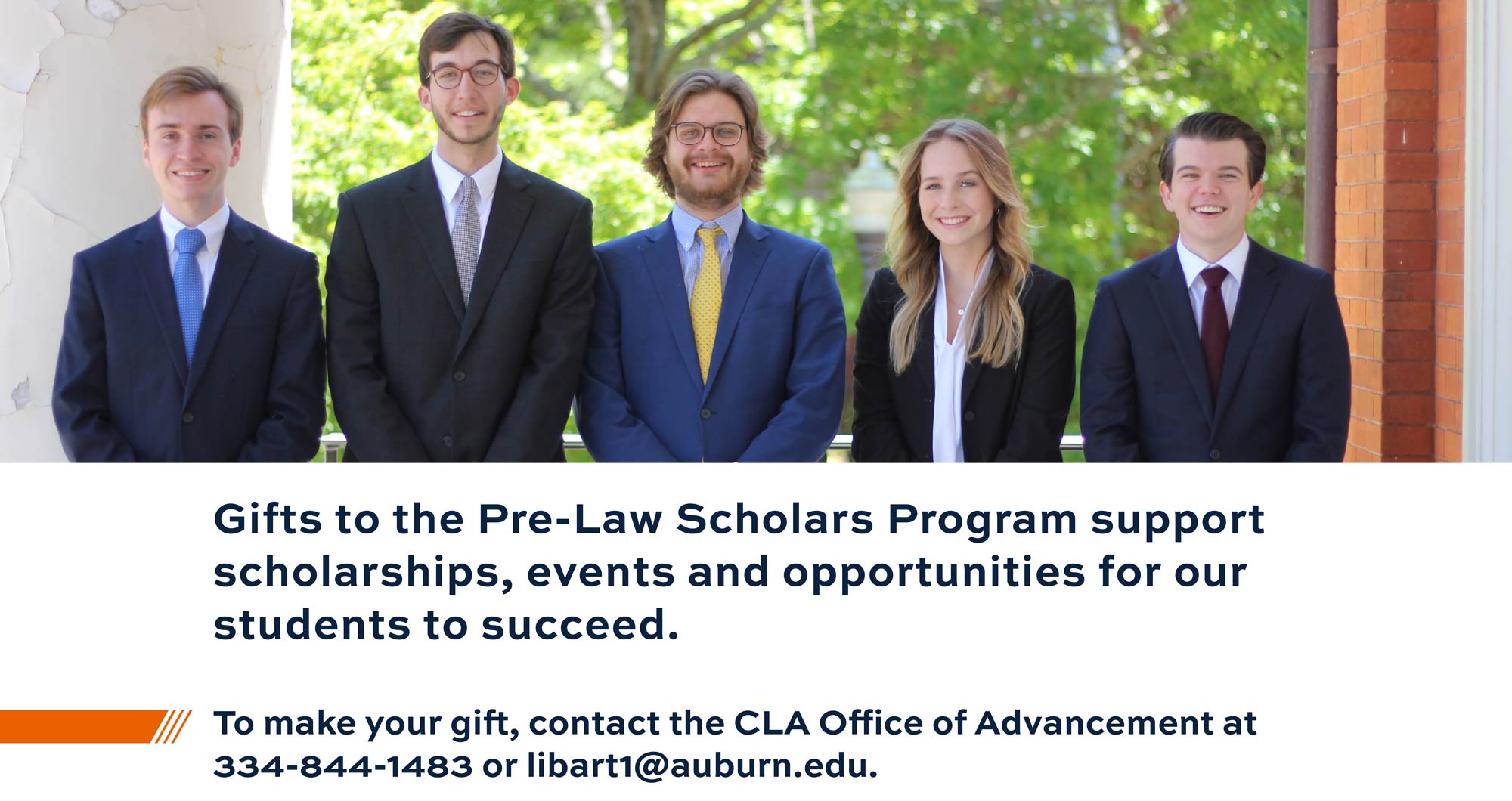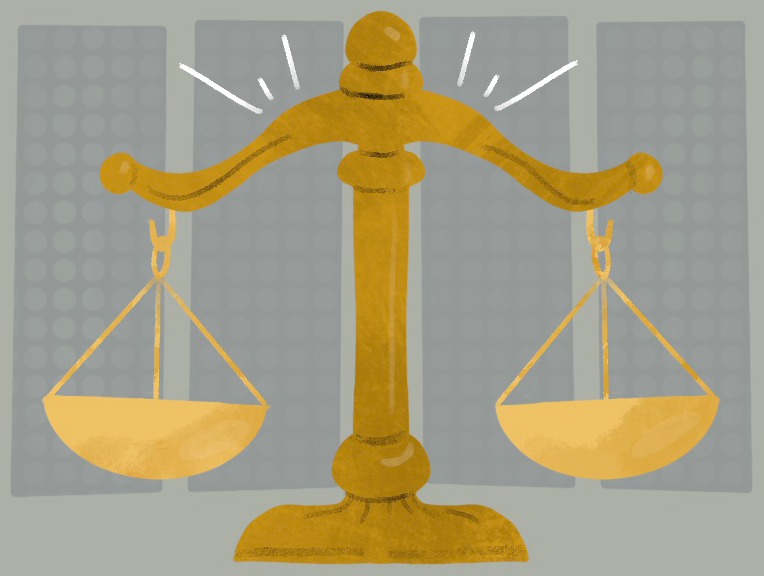
From Classroom to Courtroom

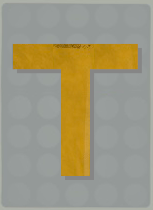
he College of Liberal Arts at Auburn University’s Pre-Law Scholars Program celebrated another year of successful students entering law school and industry in 2022.
The Pre-Law Scholars Program at Auburn University is designed for students seeking acceptance to law school or entry into the legal profession. Members build their own plan and are supported by the program through advising, law school application review, interactions with law school admissions deans and directors who visit campus, and networking events. After COVID-19 caused a nationwide decline in law school acceptance rates, Auburn maintained an 83% acceptance rate according to Law School Admission Council data – the highest in the SEC and significantly higher than the national average of 68%.
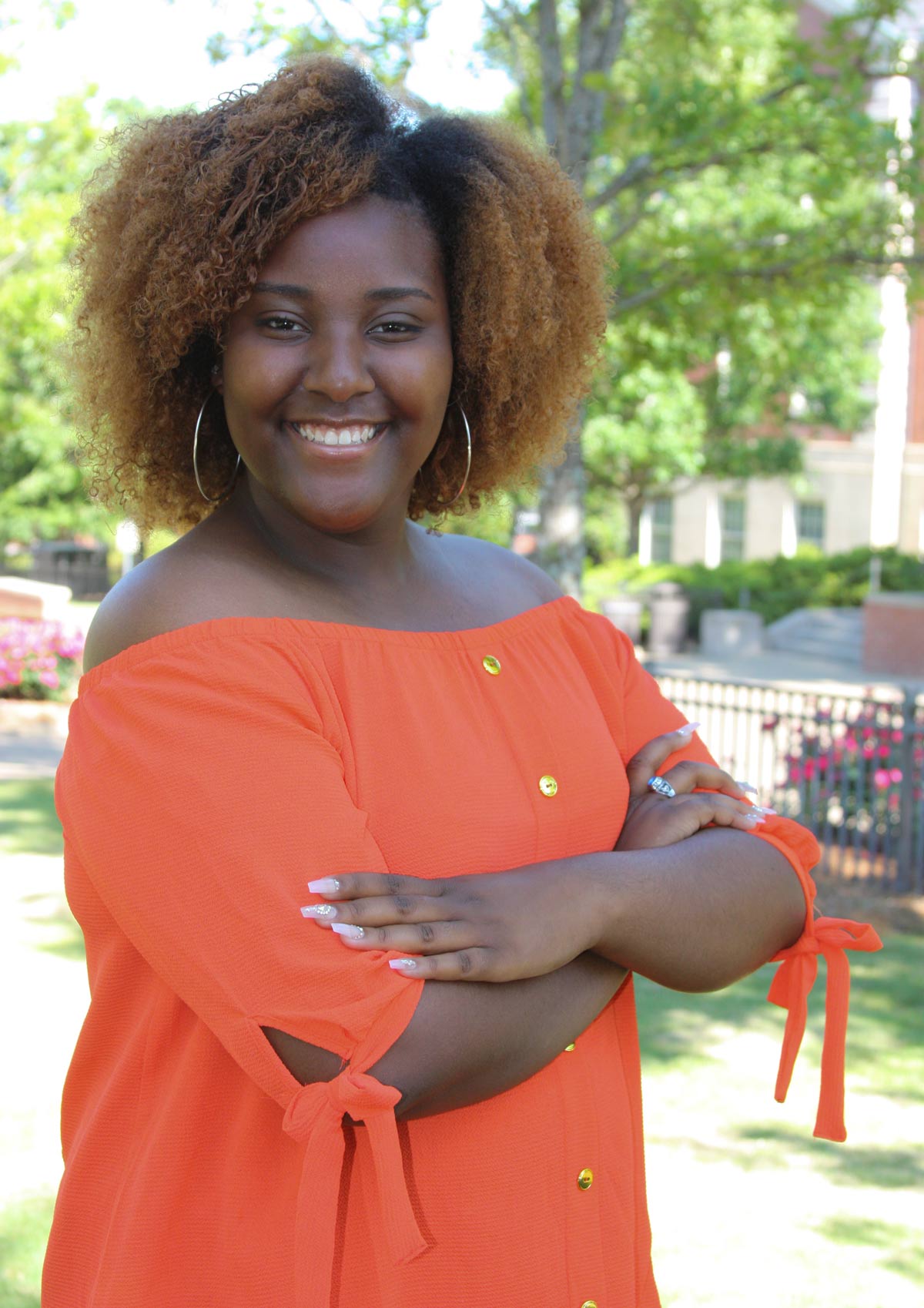
“Being a first-generation law student is challenging because you don’t have family members that have been down this path before. The Pre-Law Scholars Program really fills in that gap,” Neal said. “And then finding people who are also going through the law school application process with you is also super important because it’s so hectic. Of course, you have your family and friends’ support, but my parents haven’t applied to law school, so they can only empathize so much. That’s been super important.”
For Neal, the Pre-Law Scholars Program also connected her with an internship opportunity that aligned with her career goals. During the 2021-2022 academic year, Neal interned with the Middle District of Alabama’s Clerk of Court, working on an oral history project and getting firsthand experience in procedural aspects of the court.
Through that experience, Neal connected with judges and clerks, learned more about the law school application process and was inspired by oral histories of civil rights lawyers, such as Solomon Seay, Jr.
“After being an intern at the courthouse, I definitely want to be a clerk after graduating from law school,” Neal said. “I’m really passionate about civil rights law, and I think that there are a lot of civil rights issues that go unnoticed and aren’t being addressed. I want to bridge that gap. The legal field is something that’s super underrepresented. Only 2% of lawyers in America are Black women, and that’s a problem. And so, I want to serve in that regard. I would love to be a judge one day. That’s my long-term goal.”
Pre-Law Scholars Program Coordinator Debra Armstrong-Wright said Auburn’s program sets itself apart from other schools with its customized attention to students. The freedom students are given with programming, and the multiple reviews of law school applications materials Armstrong-Wright offers, guides students from freshmen year through graduation.
“The personal touch that we try to provide every individual pre-law student at Auburn is something that makes our program special,” Armstrong-Wright said. “Their ability to participate as an active member starts from day one of enrollment. Some campuses restrict full involvement in pre-law programming or advising to later years; however, I very much appreciate those students who take charge of planning their professional futures at such an early stage. In the long run, it helps them start on the right track.”
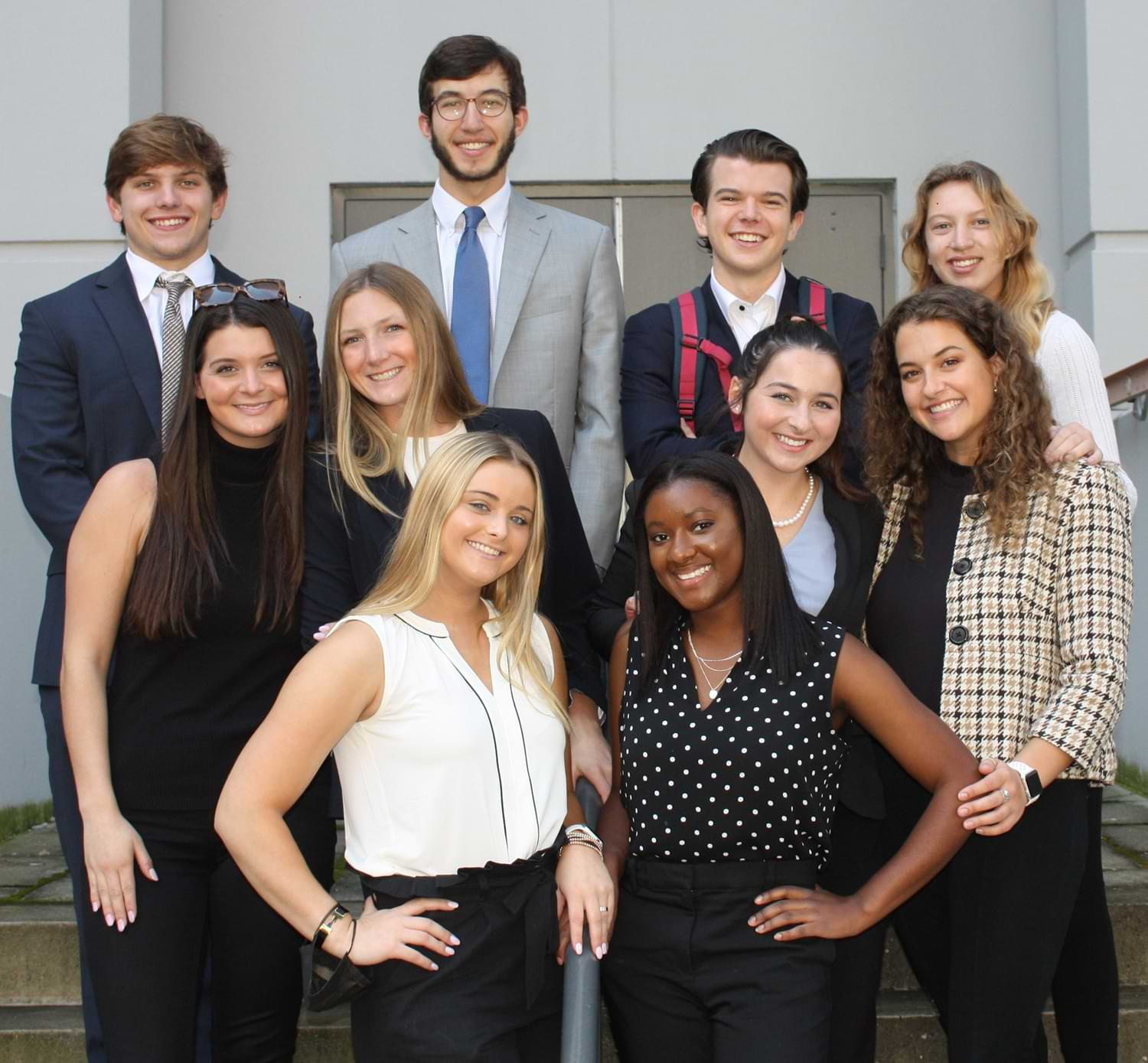
In some cases, Armstrong-Wright encourages students to take a gap year between their undergraduate studies and entry into law school. She points to the average freshmen profile at top-ranked law schools – approximately 82% of Harvard University law students spent at least one year out of college and Yale University’s average 1L student was 25 years old, with only 8% coming straight from their undergraduate school.
Furthermore, Armstrong-Wright said the strain of law school is better managed with a renewed mind, more experience and time to build a strong application that may not be feasible while gaining an undergraduate degree.
“There are two main reasons I recommend students consider taking a gap year or two between undergraduate and law school,” Armstrong-Wright said. “For students who have been so heavily involved during undergraduate school that they were left with little opportunity to do intensive LSAT prep, taking an extra year to prepare may be the key to gaining admission to the nation’s most competitive law schools. Also, law school is hard. It requires far more than undergraduate school in terms of the quantity of work and complexity of material. Having a refreshed, rested mind is a far better way to begin. It certainly makes for a more pleasurable experience.”
Joseph Compton is a 2022 economics and political science graduate who was heavily involved with the Auburn University Mock Trial team and conducted undergraduate research in the Department of Economics. Instead of going straight to law school, Compton accepted a full-time position as a legal analyst with Goldman Sachs in Dallas, Texas, where he will assist the legal team for a minimum of two years.


“Beyond maturity, I just think the professional skills that I can gain in a fast-paced, work-oriented environment like Goldman Sachs is everything. Maturity and then honing my work skills are going to be integral no matter where I go to law school or what career in the legal profession I pursue,” Compton said. “And I’ve just found the flexibility that I’ve already gained with my two degrees is everything in the job market. And I think I’m going to be among the most competitive students for law school. So, my heart and soul are in the College of Liberal Arts and I’m appreciative of my time in the program.”
Compton encourages current or prospective Pre-Law Scholars Program students to be open to the opportunities at Auburn and make connections. For him, the original plan was to study for four years and apply to law school, but through the program, doors he never considered opened.
“Putting yourself out there in that community, it can be really hard to see the opportunities. But I think once you start saying yes to conversations and to a dialogue with people who are in a similar position to you just a few years detached is everything,” Compton said. “Anyone you speak to that has interacted with Debra will tell you that she gives you everything you need and more. I’ve been on the phone with her at six a.m., eight, at midnight, everything in between. They’re invaluable resources in the College of Liberal Arts. And I think saying yes, and taking advantage of those, is really everything moving forward and it’ll open doors in and outside the classroom.”
